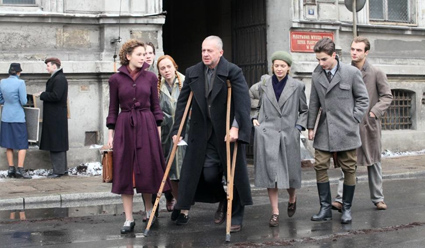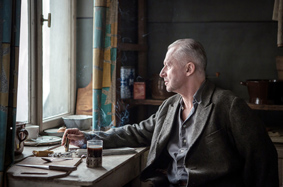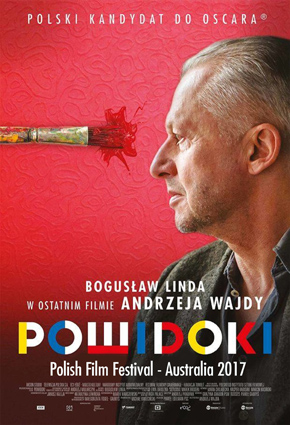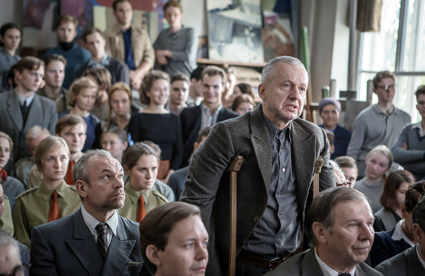 |
Puma Media
Polish Film Festival Australia 2017 |
Sydney:
17 - 26 November, Event Cinemas, 505-525 George Street, Sydney CBD Canberra: 18 - 26 November, Event Cinemas, 6 Franklin Street, Manuka Melbourne: 30 November - 10 December, Classic Cinemas, 9 Gordon Street, Elsternwick |
|
|
|
 |
 |
| DIRECTORS
NOTE I wanted to film the story of an artist and painter for a very long time now. I decided to bring Władysław Strzemiński to screen because he is one of the most accomplished Polish artists, and he has been wiped out of the public memory by the consequent actions of the Communist government. Strzemiński understood the path of modern art. He explained it in his book entitled 'Theory of Vision'. The conviction that the abstract art is the only option left to an artist because thematic painting and postimpressionism have already said everything, gave him the strength to oppose the Communist authorities. He was an exceptional teacher, as well as a founder of the second in the world Museum of Modern Art in Łódź in 1934. AFTERIMAGE is a portrait of an unbroken man - a man confident of the decisions he has taken; a man fully dedicated to art. The film depicts four grave years 1949 to 1952, when the sovietisation of Poland took the most radical form and the socialist realism became the obligatory style of artistic expression. I wanted to show a conflict of a distinguished individual with the Socialist state attempting to control every aspect of human life. How a human being can stand against the state apparatus? What is the price one has to pay for freedom of expression? What are the choices each individual faces in a totalitarian country? Although we thought these are questions of the past, they are slowly starting to haunt us also today, and we should not forget what we already know about how to answer them. Andrzej Wajda SYNOPSIS In post-war Poland, renowned painter Wladyslaw Strzemiński works as a professor at the National School of Fine Arts in Łódź. A great artist and co-creator of the theory of Unism, Strzemiński became famous before the Second World War. His students still treat him as the "messiah of modern painting", but university authorities and the Ministry of Culture have a very different opinion. Unlike artists loyal to the doctrines of socialist realism and those fulfilling Party tasks, Strzemiński does not compromise his art. He refuses to comply with Party regulations, and is eventually expelled from the university and the artists' union. Despite that, Strzemiński's students continue to support him, and visit him for private lectures during which they pen down his 'Theory of Vision' and listen to his critique of their work. Nevertheless, as the Communist authorities remain persistent in their actions to ruin him, jobless and impaired due to a missing arm and leg, Strzemiński soon falls into poverty and poor health.... |
O FILMIE "(...)
W dobie szalejącego na całym świecie populizmu i pogardy wobec inności
Wajda nakręcił film o potrzebie wewnętrznej wolności. Przypomniany przez
reżysera malarz Władysław Strzemiński stanowi inspirującą figurę oporu
przeciw władzy chcącej odebrać mu swobodę ekspresji. "Powidoki" to jednak
nie tylko portret antykomunistycznego buntownika, lecz także wyraz uznania
złożony przez jednego artystę drugiemu. (...) |

